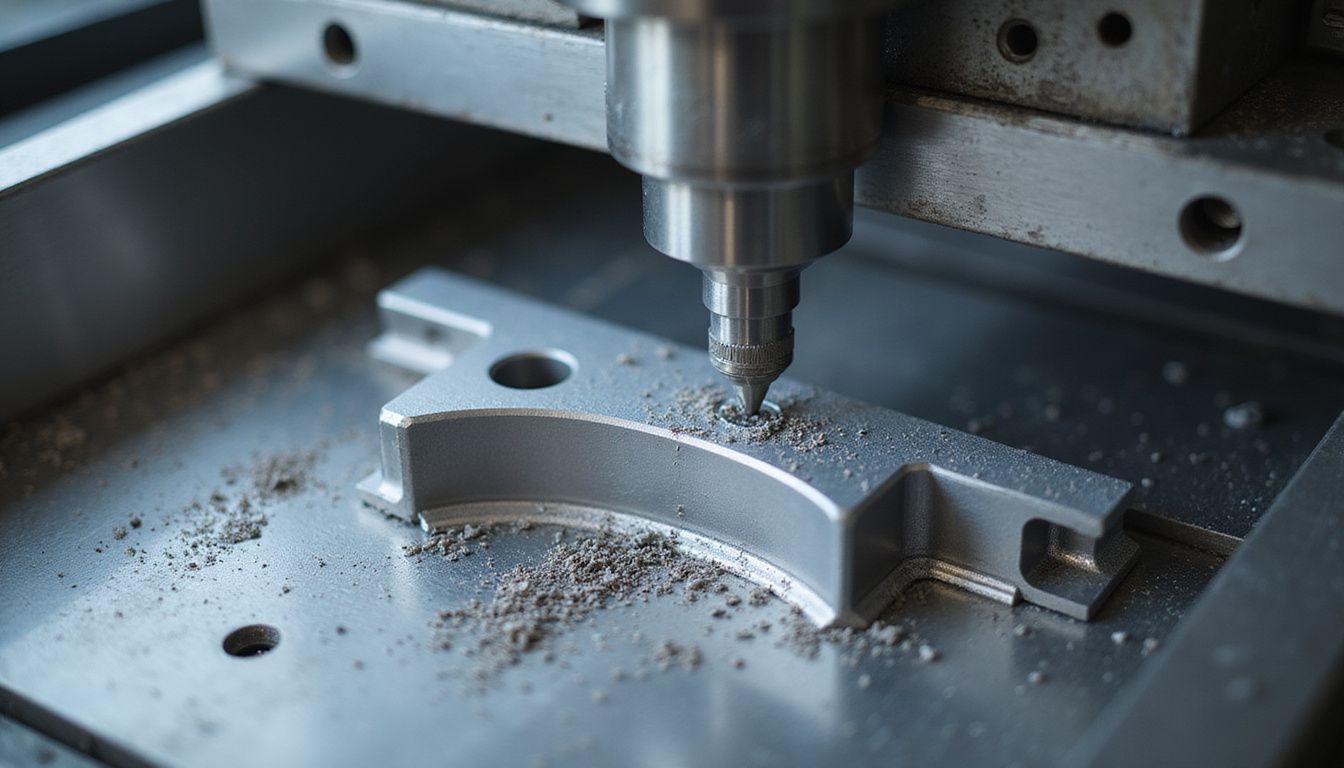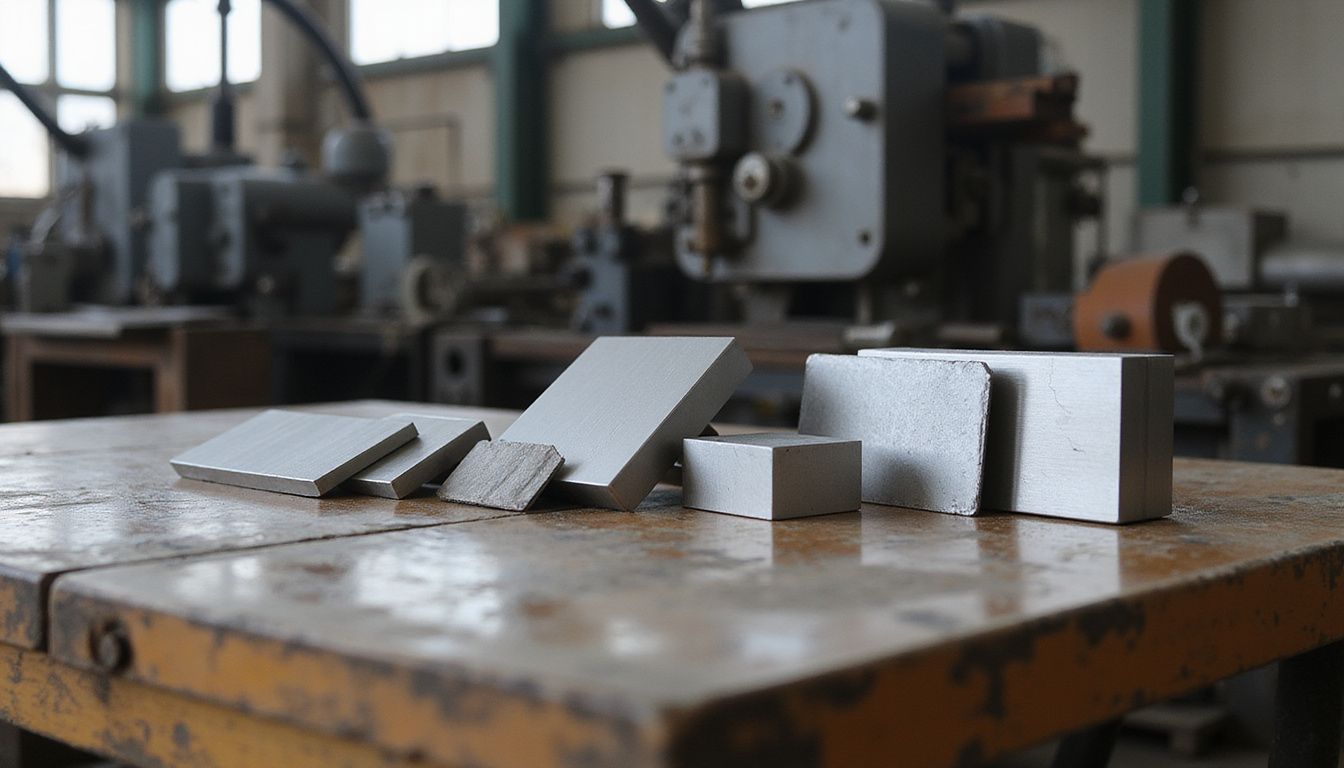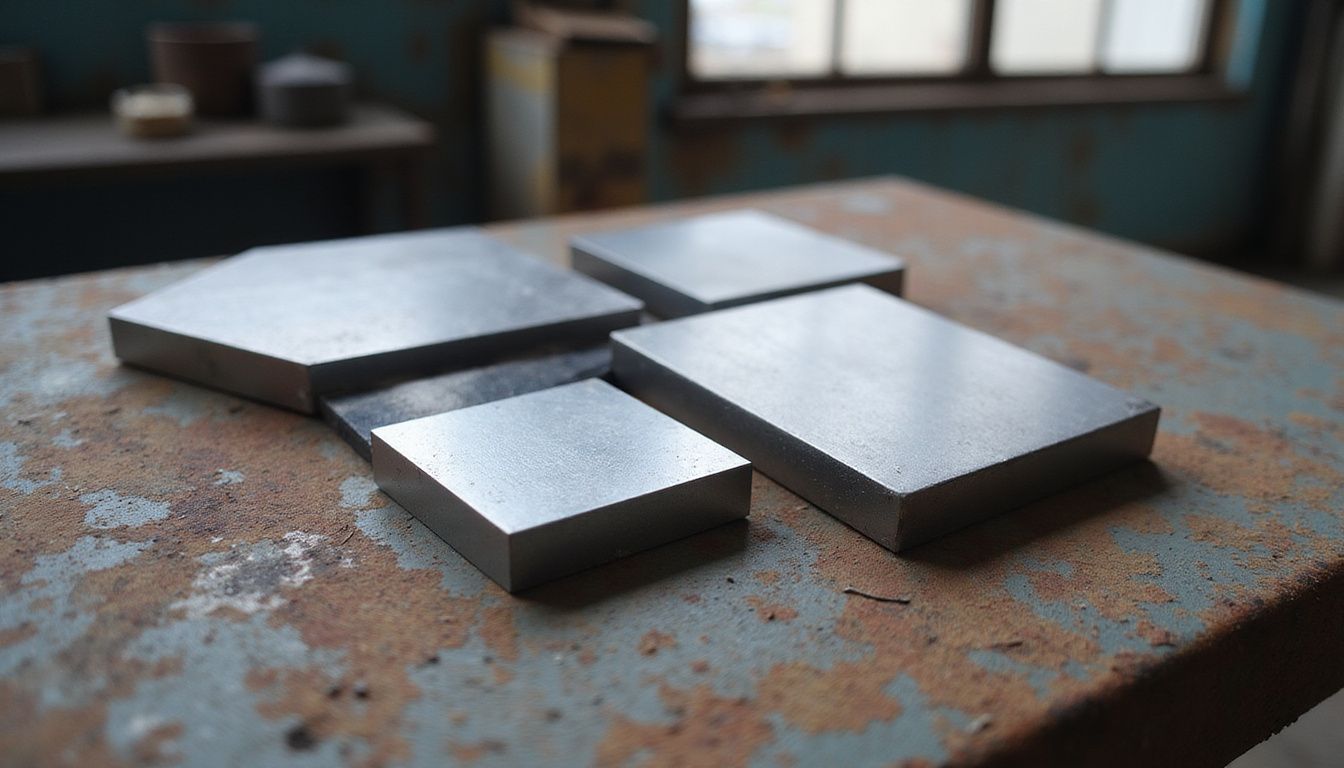
Understanding Titanium's Unique Material Properties
Titanium is a vital material in advanced engineering. This guide explores the unique titanium properties that make it a top choice for demanding applications.
We will cover titanium's key benefits, compare common grades, and discuss its manufacturing challenges. You will learn why this metal is so valued.
What Makes Titanium Unique?
Titanium (Ti) is not just one thing. It is a family of alloys. Its true value comes from a rare blend of features.
It perfectly balances strength, lightness, and resilience. No other common metal offers this exact combination. This makes it the default choice for critical components.
It performs where other metals fail. Let's explore the specific properties that make this possible.
5 Key Titanium Properties

Understanding these five traits shows why titanium is essential for high-performance engineering.
High Strength-to-Weight Ratio
Titanium is famous for its high strength. It is as strong as many common steels.
However, it is about 45% lighter. Its density is roughly 4.54 g/cm³. This is a major advantage over steel, which has a density of ~8.0 g/cm³.
This ratio is why it's used in aerospace. Lighter planes mean better fuel efficiency and higher performance. It provides steel-like strength at a weight closer to aluminum.
Superior Corrosion Resistance
Titanium is exceptionally resistant to rust and corrosion.
When exposed to air or water, it forms a thin, protective oxide layer (TiO2). This passive layer is stable, tough, and self-healing if scratched.
It excels in harsh environments. This includes saltwater, chlorides, and many industrial acids. This property makes it perfect for marine, medical, and chemical processing.
Excellent Biocompatibility
Biocompatibility means it is non-toxic and non-reactive with the human body.
The body does not reject titanium. It even has a unique ability to fuse directly with bone. This process is called osseointegration.
This makes it the global standard for medical implants. Think hip joints, dental implants, spinal fusions, and bone screws.
High Heat Resistance
Titanium maintains its strength at high temperatures.
It has a high melting point of 1,668°C (3,034°F). It can operate effectively at temperatures where metals like aluminum would weaken significantly.
This makes it ideal for high-temperature applications. You will find it in jet engine parts, turbine blades, and automotive exhausts.
Low Thermal Expansion
Titanium expands and contracts very little with temperature changes.
This property is called a low coefficient of thermal expansion. It ensures high dimensional stability, even when temperatures fluctuate.
Parts retain their exact shape and tight tolerances. This is critical for precision aerospace structures, optical equipment, and sensitive instruments.
Common Titanium Grades Explained
Not all titanium is the same. Grades are split into commercially pure (CP) and alloys. We will focus on the two most common grades you will encounter.
Grade 2 (Commercially Pure)
This is the "workhorse" of the commercially pure (CP) grades.
It offers moderate strength. Its best traits are excellent formability and weldability. It also has the highest corrosion resistance of all grades.
You find Grade 2 in chemical processing tanks, pipes, and marine hardware. It is used where corrosion resistance is more important than high strength.
Grade 5 (Ti 6Al-4V)

This is the most popular titanium alloy in the world.
It contains 6% aluminum and 4% vanadium. These additions significantly increase its strength. It is much stronger than any pure titanium grade.
Grade 5 is heat-treatable for even higher strength. It is the top choice for aerospace structures, high-performance engines, and medical implants.
Titanium vs Steel vs Aluminum
How does titanium stack up? Here is a simple comparison for engineers and designers.
| Property | Titanium (Grade 5) | Steel (304 Stainless) | Aluminum (6061) |
| Density | ~4.43 g/cm³ (Light) | ~8.00 g/cm³ (Heavy) | ~2.70 g/cm³ (Very Light) |
| Strength (Tensile) | ~950 MPa (Very High) | ~515 MPa (Medium) | ~310 MPa (Low) |
| Strength-to-Weight | Excellent | Good | Very Good |
| Corrosion Resist. | Excellent | Good | Good |
| Cost | Very High | Low | Low |
- Choose Titanium if: You need the best strength-to-weight ratio and elite corrosion resistance. Cost is a secondary concern.
- Choose Steel if: You need high strength or hardness at a low cost. Weight is not a critical factor.
- Choose Aluminum if: You need light weight and good strength. The part is not in a high-temp or highly corrosive environment.
Top Applications for Titanium
Titanium's unique properties make it a problem-solver in many industries:
- Aerospace: Landing gear, airframes, fasteners, and engine components.
- Medical: Surgical implants, pacemakers, and dental fixtures.
- Marine: Propeller shafts, submarine hulls, and saltwater cooling systems.
- Chemical: Heat exchangers, reaction vessels, and valves.
- Performance: High-end sports equipment and automotive exhausts.
Challenges in Machining Titanium
Titanium is notoriously difficult to machine. This difficulty is a primary driver of its high finished-part cost.
- Low Thermal Conductivity: Heat does not transfer to the chips. It builds up in the cutting tool, causing rapid tool wear and failure.
- High Reactivity: At high machining temperatures, titanium chips can chemically react and weld to the tool. This breaks the cutting edge.
- Low Elasticity: The material tends to "push away" from the tool. This causes tool chatter, poor surface finish, and dimensional inaccuracy.
Machining titanium requires rigid machines, sharp tools, low cutting speeds, high feed rates, and high-pressure coolant.
Standard Machining’s Titanium Solutions
Machining titanium demands true expertise. At Standard Machining, we specialize in hard metal manufacturing.
Our advanced 5-axis CNC centers are optimized for materials like titanium. We use specific tooling, geometries, and cooling strategies to overcome its challenges.
We understand the nuances of Grade 2 and Grade 5. We deliver titanium parts that meet your exact tolerances and quality standards, on time.
We manage the complexity so you get a perfect, reliable component.
Conclusion
Titanium offers an unmatched blend of strength, lightness, and resilience. While costly and hard to machine, its performance is essential for critical applications.
Need high-quality titanium parts? Contact Standard Machining. Our experts are ready to manage the complexities of your next precision manufacturing project.
FAQs About Titanium
1. Is Titanium Stronger Than Steel?
It depends. By weight, titanium (like Grade 5) is significantly stronger than most standard steels. By volume, some high-end steel alloys can be stronger. Titanium's main advantage is its superior strength-to-weight ratio.
2. What Is the Main Disadvantage of Titanium?
The primary disadvantage is cost. Titanium is expensive to refine from its ore. It is also very difficult to machine, which increases manufacturing time and tooling costs. This makes the final part much more expensive than one made from aluminum or steel.
3. Why Is Titanium So Widely Used in Medical Implants?
Titanium is the top choice for implants for three expert-proven reasons:
- Biocompatibility: It is non-toxic and not rejected by the human body.
- Corrosion Resistance: It does not corrode or react with bodily fluids.
- Osseointegration: It has the unique ability to fuse directly with human bone, creating a strong, long-lasting implant.
4. Does Titanium Rust?
No. Titanium does not rust in the way iron or steel does. It has exceptional corrosion resistance. It instantly forms a stable, protective titanium dioxide (TiO2) layer when exposed to oxygen. This passive layer prevents any further corrosion from occurring.


